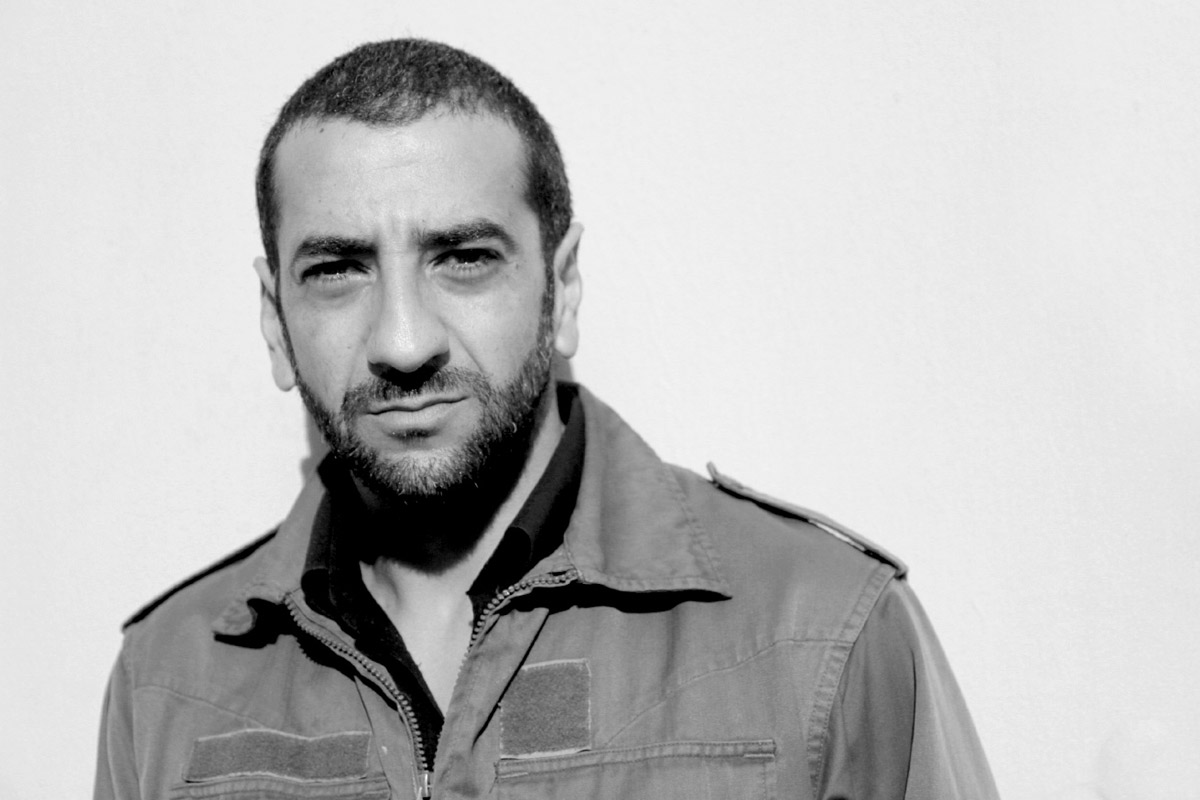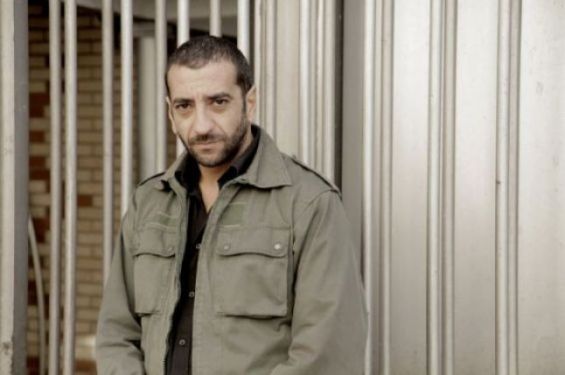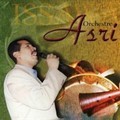«I was born again at the age of 29», said Karim Saidi, a French-Moroccan actor and a cinema lover. It is indeed at the age of 29 that his life took a new turn: that of a rebirth.
Karim Saidi was born on July 17, 1973 in La Seyne-sur-Mer, in Provence, to Moroccan parents: his father is from Nador and his mother is from Tan-Tan. At the age of eighteen, he joined the army with the 2nd Marine Infantry Regiment, based at Le Mans. He left for Chad, Bosnia and Rwanda during the genocide in 1994, and then left the army three years later.
«What I saw in these countries at war was tragic ... I served the French state for three years and then I decided to resign because I thought I had learned from the army everything it had to 'offer'», Karim Saidi said. «I did not picture myself working for the army for fifteen years until retirement! I knew I was going to kill myself if I stayed there», he admitted.
Once he turned the page of this military chapter, he opened a restaurant in Saint-Tropez, between 1994 and 1999, while he was still in his twenties. One day, humorist and imitator Yves Lecoq, who is best known for impersonating Jacques Chirac and Patrick Poivre d'Arvor, came to dine in his kebab restaurant. «He told me that I had the energy to be an actor. That day, he planted a seed. I sold my restaurant to try to become an actor and I found my way».
Embody rather than play characters
Karim Saidi moved to Paris and joined Studio Pygmalion, a training center for amateur and professional actors. «I attended evening classes for beginners. After a month and a half, I went to afternoon classes and was blown away». The actor remembers that «growing up, [he] was not good at school, so skipping a class was wonderful» but with these classes, he learned how to «build trust, channel [his] emotions and be able to take them out at the right moment on the set of a film».

Karim Saidi defines himself above all as an actor : «An actor is someone who has always wanted to do that, who took classes very young and plays characters. The actor is an accident! He interprets, embodies the character. What is the difference between playing and embodying?»
«'Playing', I do not know what that means. I have always been interpreting and embodying characters».
At Studio Pygmalion, a second seed was planted in him when he met with Paul Belmondo, the son of Jean-Paul Belmondo. He secured an appointment for the casting of the film «Munich», by Steven Spielberg (2005). Saidi took part in the shooting that was set in Budapest for five weeks. «If I did not have an agent, I could not have done this casting. The cinema world requires a lot of perseverance : to have an important role, you have to have an agent. But to have an agent, you have to make movies. As long as you have not made a film, you do not have an agent, and as long as you do not have an agent, you do not have a casting! It's a vicious circle».
His films as «a bridge between Europe and Africa»
In Budapest, the shooting of «Munich» made him discover the world of cinema. «I was on a little cloud. It was difficult to come down to Earth. I had a little phase of depression after the movie. It was my first film, I did not know how the cinema world worked ... I did not have a press officer to talk about me. For a year and a half, I did not work because I did not have a role, it was difficult», he recalled.
Karim Saidi also remembers the «folkloric» film «The Life of Adele» (2013), by French-Tunisian director Abdellatif Kechiche. «I shot with him seventeen days and I only appear for five seconds in the film. It was a good experience and a bad adventure : good experience because I saw how Abdellatif Kechiche works, he has a way of working that speaks to me. Bad adventure because it was a folk shoot, which was absolutely unstructured».
The actor eventually moved to Morocco, where he went first in 2004 for the burial of his father. He then went on to shoot about forty Moroccan, Italian and German films all over Morocco. «I managed to build my career here», he says. He will come back in December for the International Film and Migration Festival in Agadir, which is to pay him a tribute.
Karim Saidi also plans to get to the other side of the camera, as a director. He wrote three scenarios and tells us «I am in the social, the human. My films will always be a bridge between Europe and Africa».





 chargement...
chargement...












